
Aeolis. Kyme. Proitos, magistrate
350-250 BCE 11.16mm 1.22g
Obverse: ΠPOI, eagle standing right
Reverse: K-Y, oenochoe
SNG Turkey 9.2 223
Ex Gorny & Mosch Auction 170 (13 October 2008), lot 3214 (part)
Kyme was the largest of the Aeolian cities and was by legend founded by the Amazons. These weren’t the package delivering kind but instead were fierce female warriors. Historians, however, counter that the city was most likely populated by Greeks from Thessaly or Boeotia, since the dialects used in ancient times were nearly the same.
Although Kyme was a seaport, the contemporary Greeks wondered how they went so long without charging any taxes for their harbor. They also rarely had anything to do with the people further inland. The historian Ephoros, who hailed from Kyme, remarked that his fellow citizens sat idly for hundreds of years while things were happening elsewhere.
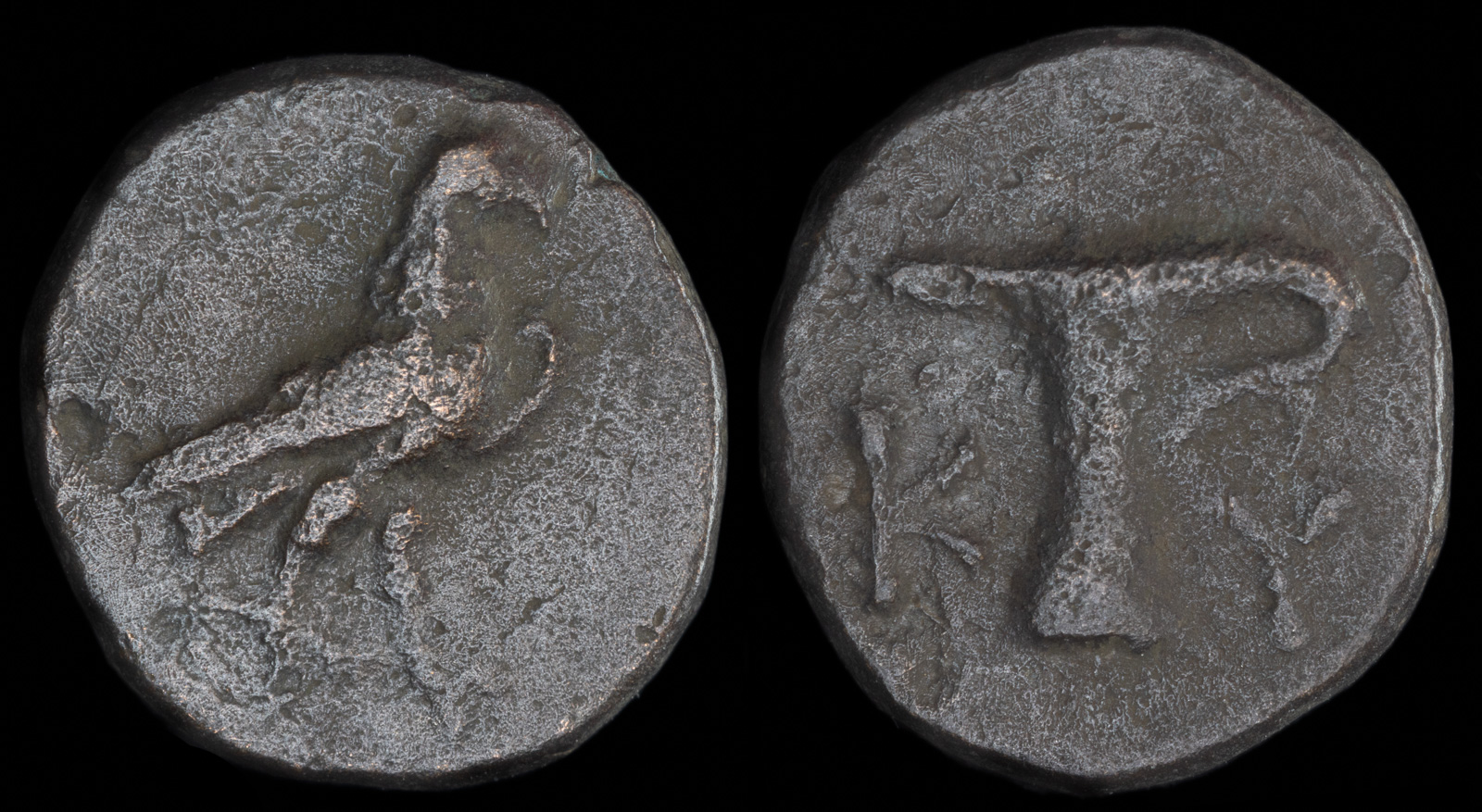
Aiolis, Kyme
circa 320-250 BCE
Æ 10mm, 1,00g
Obv: Eagle standing right with closed wings.
Rev: K – Y. One-handled cup.
SNG von Aulock 1625
During Persian times, their harbor was the principal base for the Persian fleet.
Aristotle mentioned that there was a law at Kyme where, if a prosecutor presented a certain number of his relatives as witnesses, then the defendant was found guilty.
Almost nothing is written about Kyme from the time of Philip II and Alexander the Great. Most likely, when Alexander’s generals came around, Kyme did what it historically did and surrendered the city.
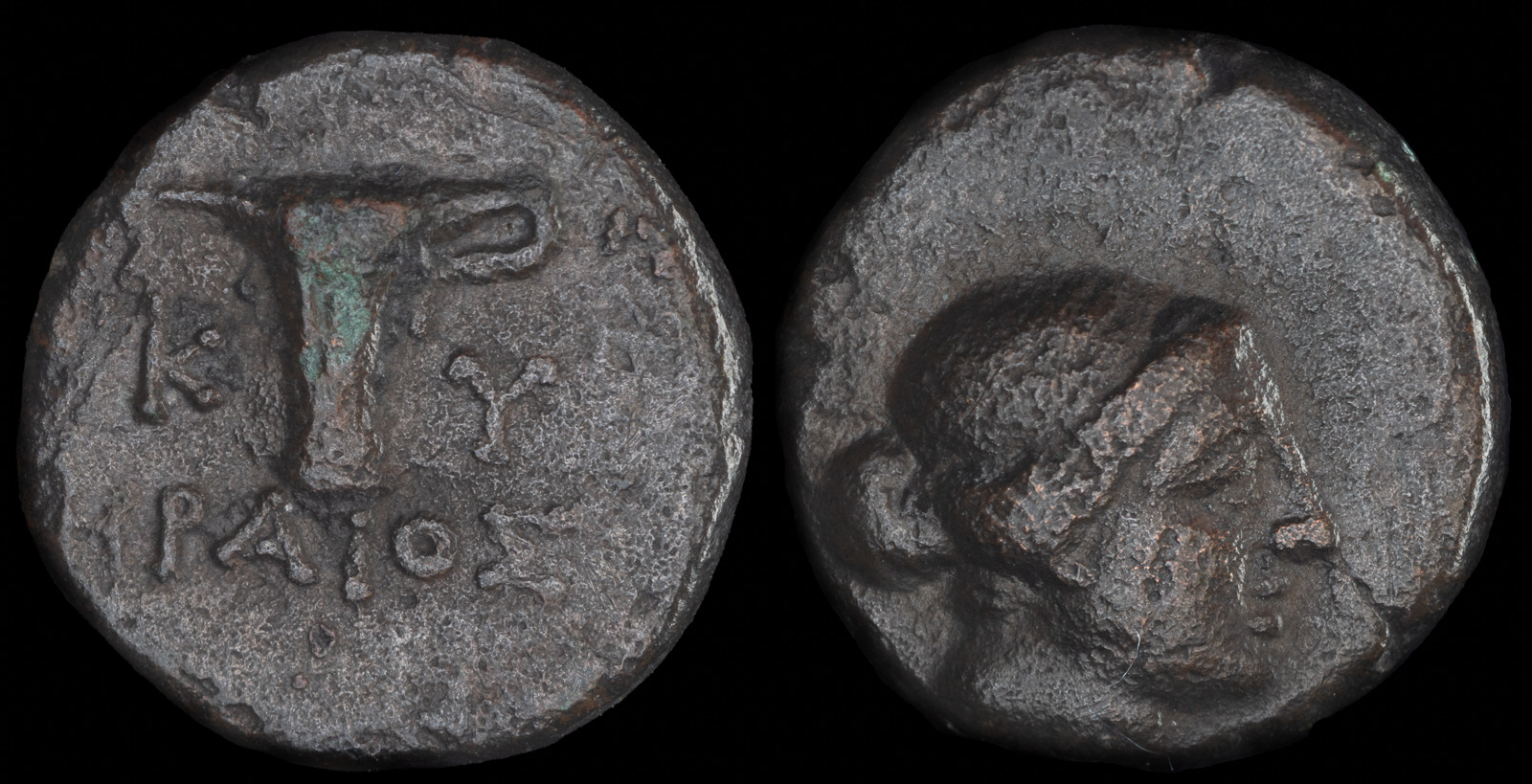
Aeolis, Kyme
Heraios magistrate
Circa 350-250 BCE
AE 1.46g 10.83mm
Obv: Head of the Amazon Kyme right.
Rev: KY / HPAIOΣ. Kotyle.
SNG Arikantürk 255-6; SNG von Aulock 7695

Aeolis, Kyme
Besbios Magistrate
Circa 250-190 BCE
AE 2.45g 14.67mm
Obv: Head of the Amazon Kyme right, wearing diadem
Rev: KY/ ΒΕΣΒΙΟΣ, forepart of horse right.
SNG Copenhagen 90; SNG Munchen 483
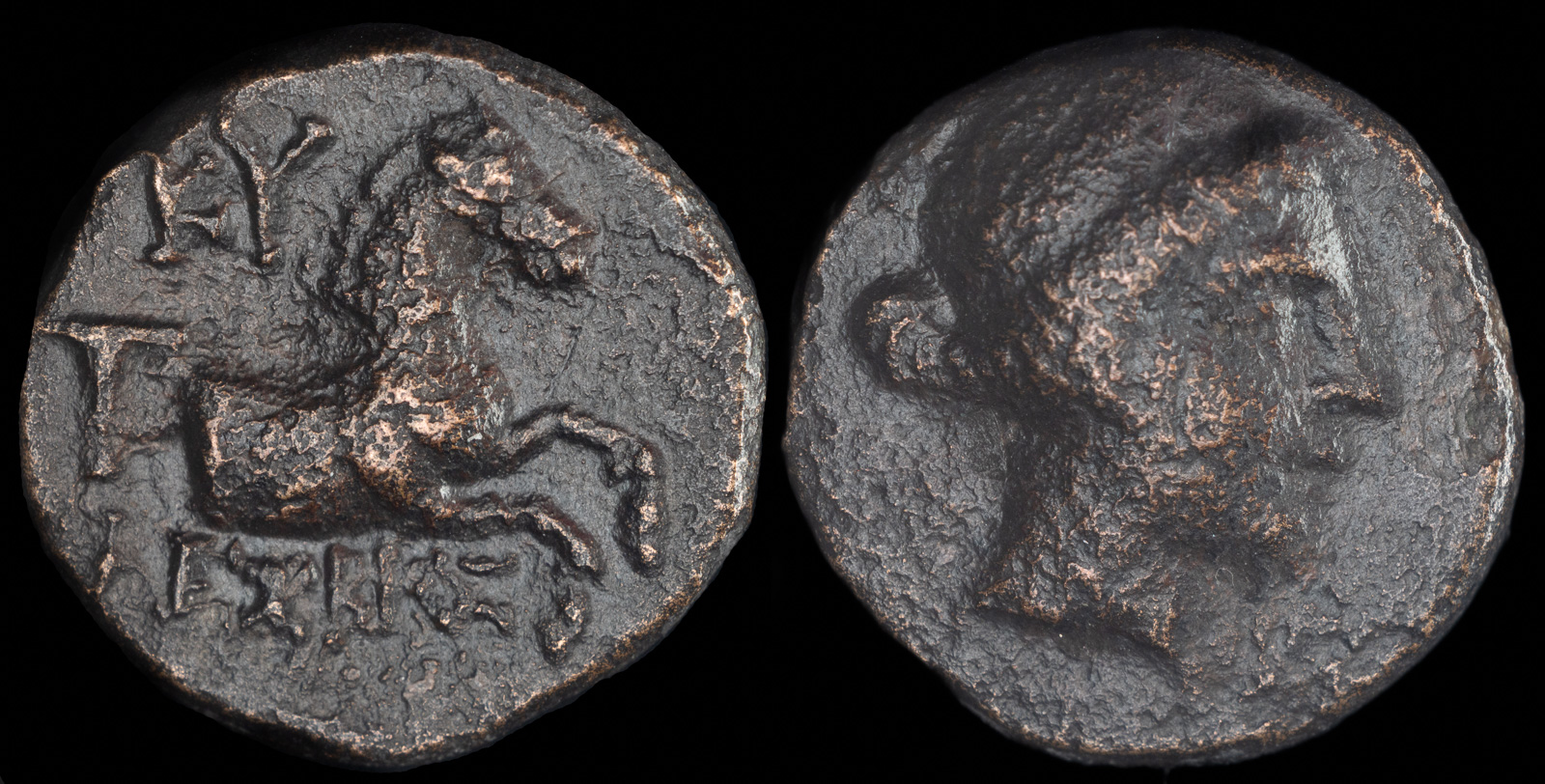
Aeolis, Kyme
Lesbios Magistrate
Circa 250-190 BCE
AE 2.59g 13.55mm
Obv: Head of the Amazon Kyme right, wearing diadem
Rev: KY/ ΛΕΣΒΙΟΣ, forepart of horse right.
SNG Copenhagen 90; SNG Munchen 483
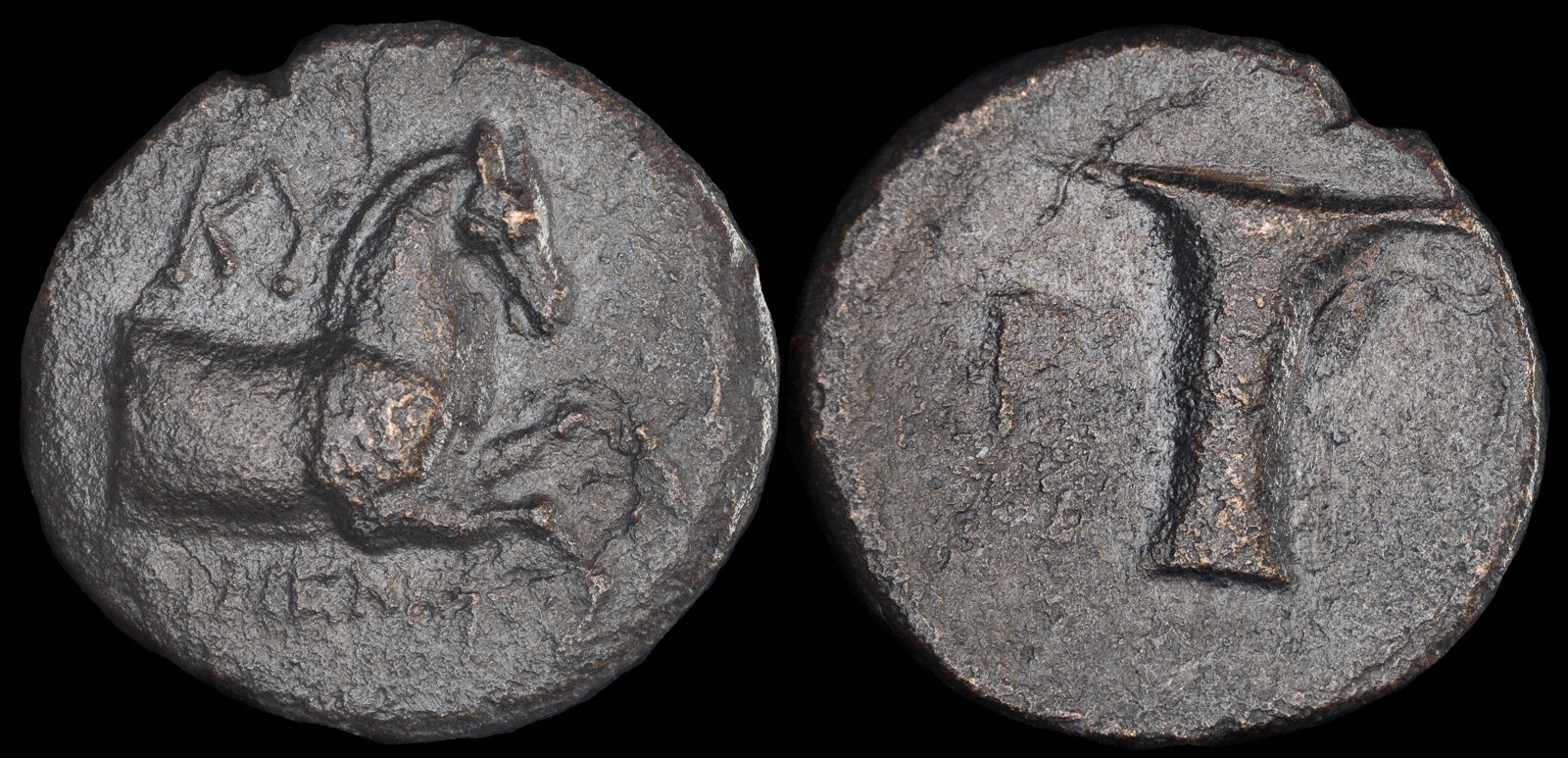
Aeolis, Kyme
Circa 350-250 BCE
AE. 3.00g 17.06mm
Obv.: Forepart of horseright; above, KY; below, uncertain magistrate
Rev.: One handled cup left
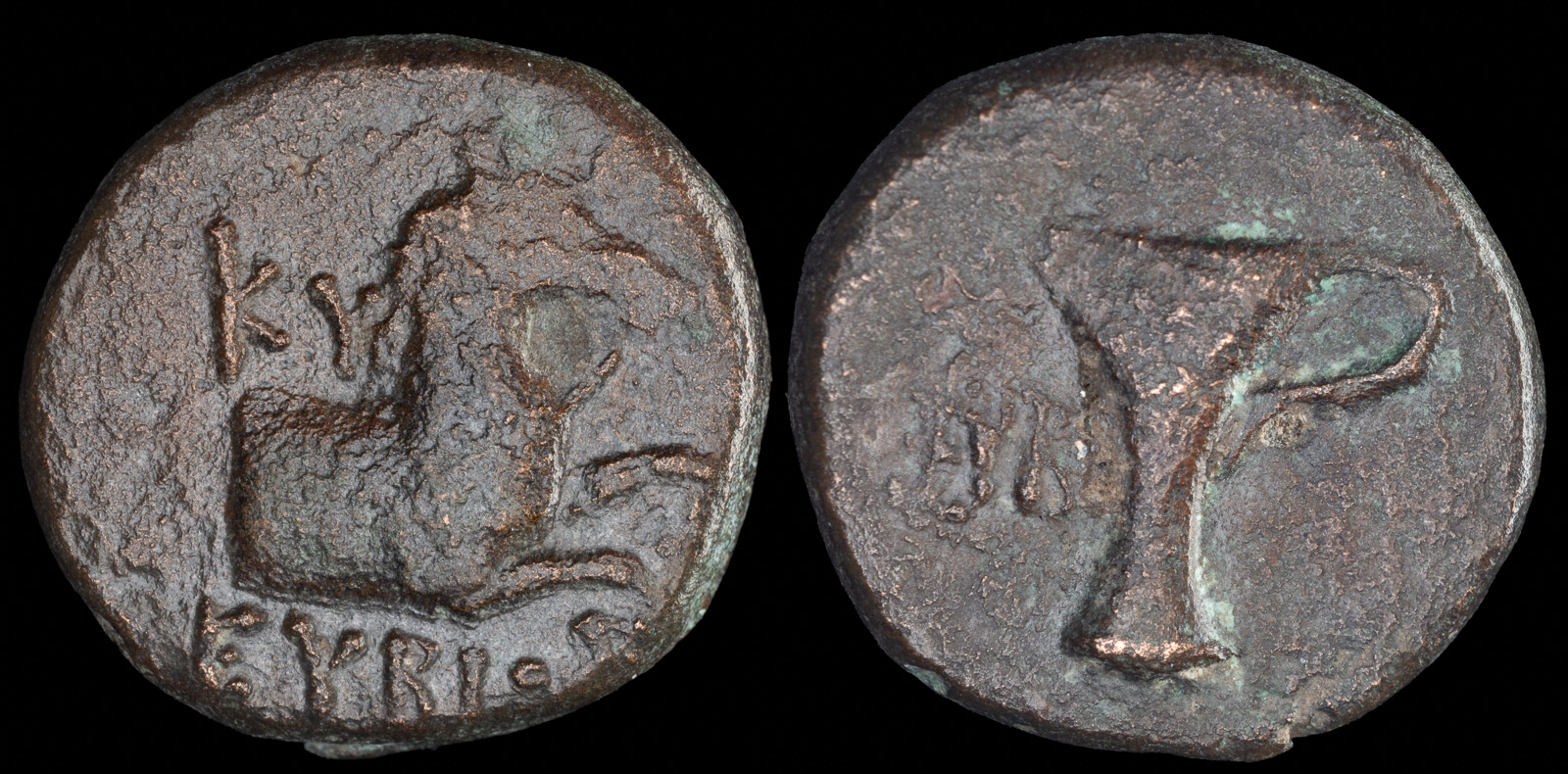
Aeolis, Kyme
Eubios, magistrate
Circa 350-250 BCE
AE 3.16g 14.75mm
Obv: Forepart of horse right.
Rev: KY / EYBIOΣ. Skyphos; monogram in left field
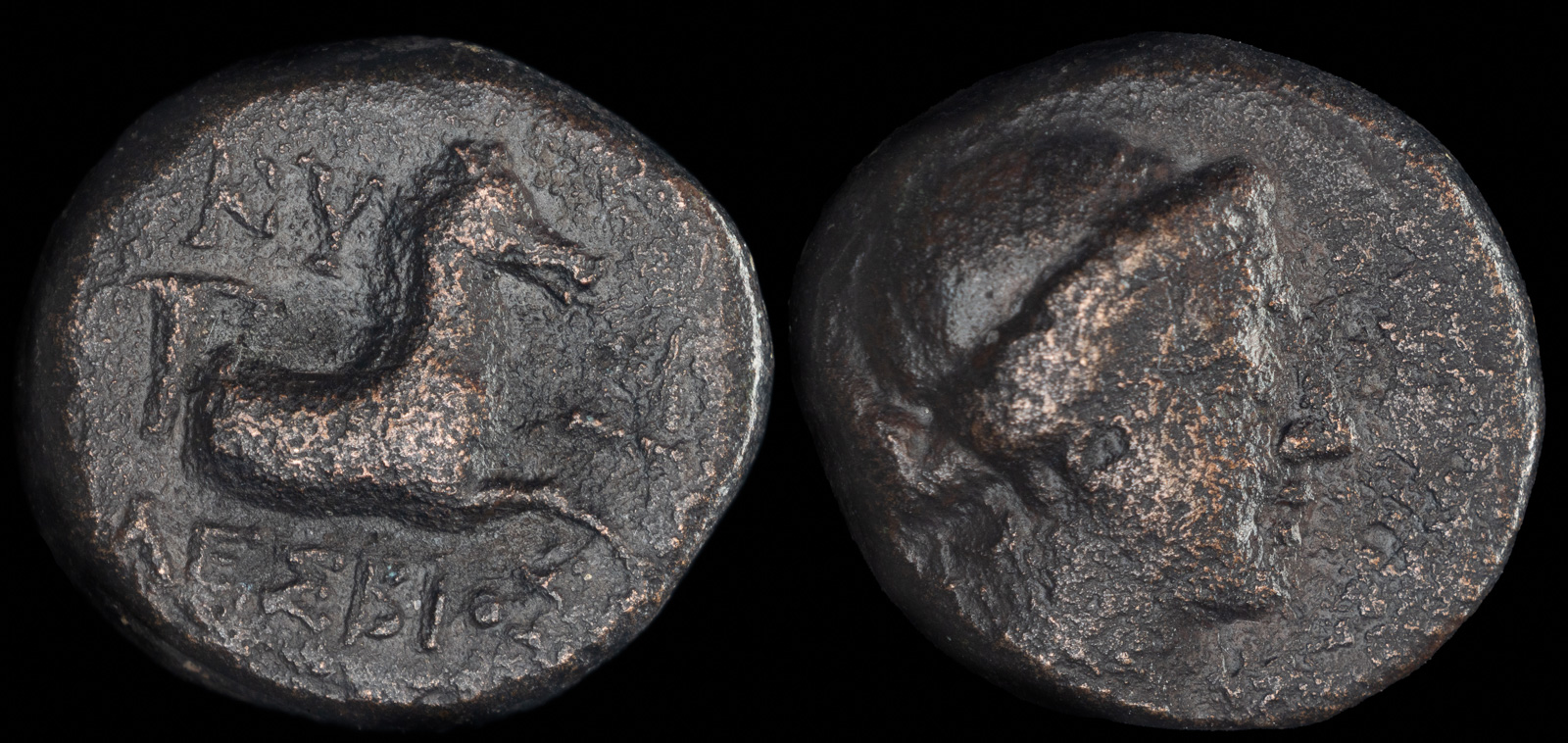
Aeolis, Kyme
Lesbios Magistrate
Circa 250-190 BCE
AE 3.57g 14.04mm
Obv: Head of the Amazon Kyme right, wearing diadem
Rev: KY/ ΛΕΣΒΙΟΣ, forepart of horse right.
SNG Copenhagen 90; SNG Munchen 483
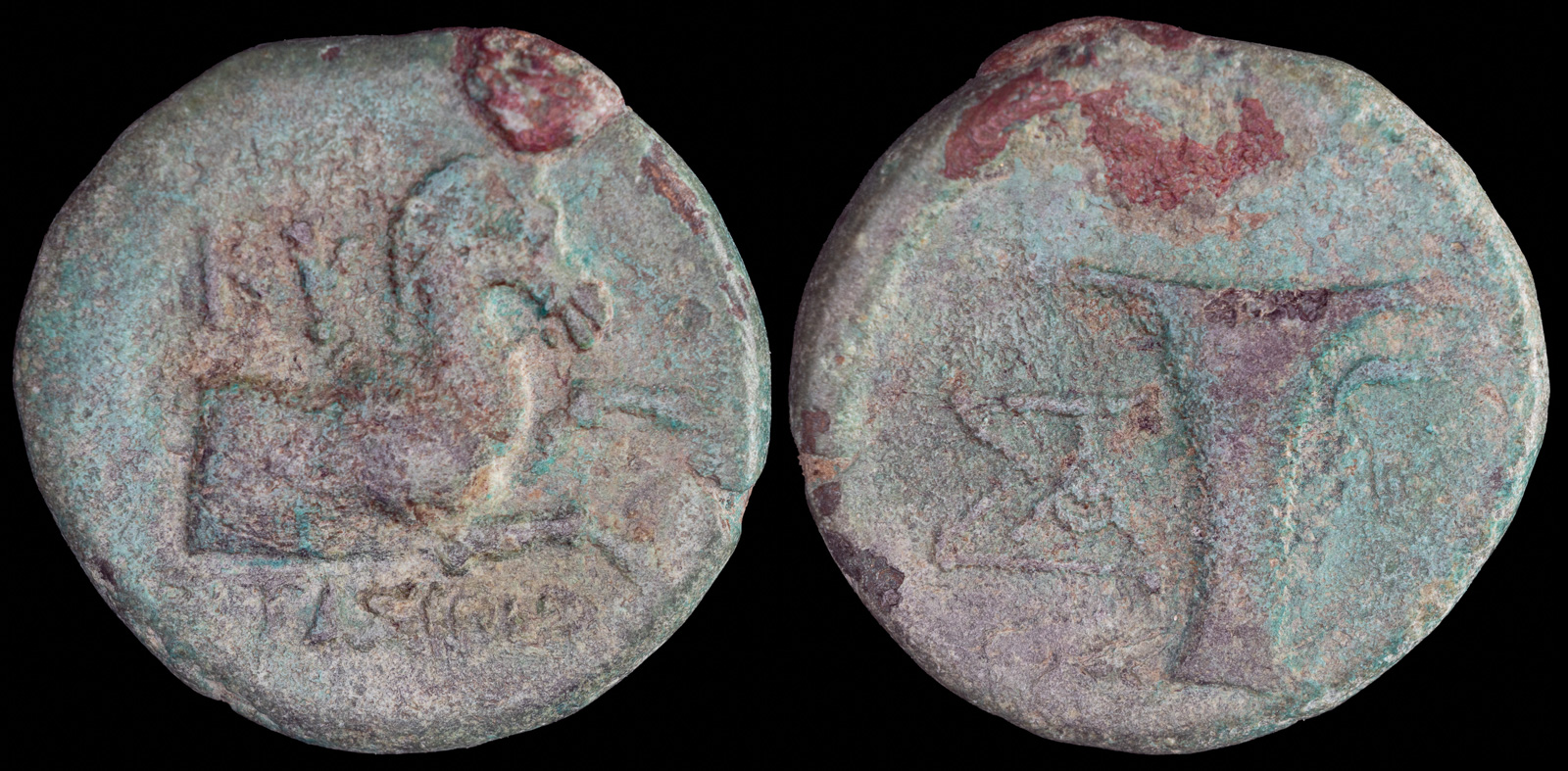
Aeolis, Kyme
Stasipos, magistrate
Circa 350-250 BCE
AE 3.87g 16.67mm
Obv: KY / ΣΤΑΣΙΠΟΣ. Forepart of horse right.
Rev: Skyphos; monogram in left field.
SNG Copenhagen 86 var. (magistrate and monogram)
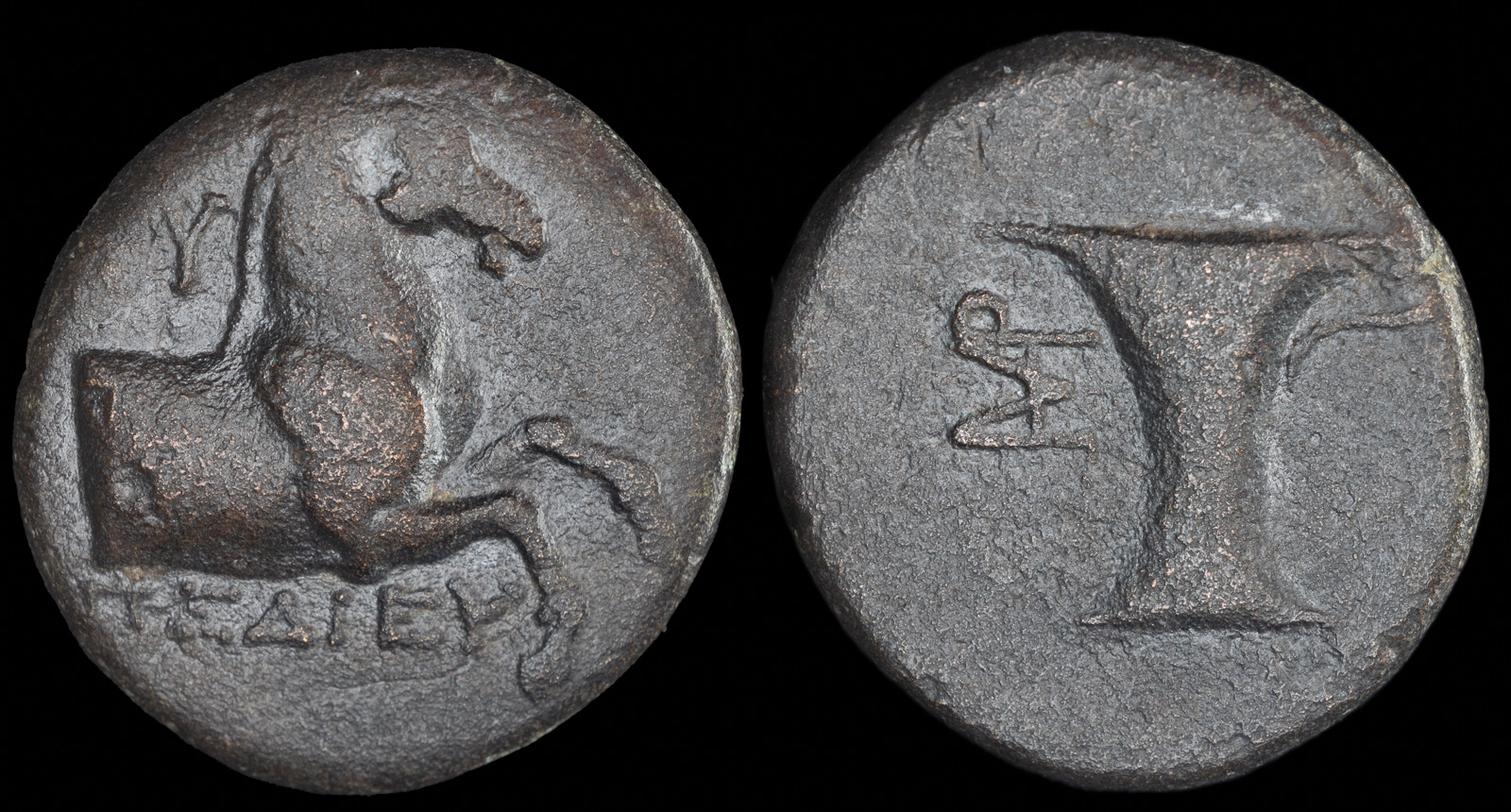
Aeolis, Kyme
Pedieus Magistrate
Circa 350-250 BCE
AE 3.91g 16.87mm
Obv: KY / ΠΕΔΙΕΥΣ Forepart of horse right.
Rev: Skyphos; monogram in left field.
SNG Copenhagen 86 var. (magistrate and monogram)
Traditional founding of Gargara by Aeolian Greeks. The city was originally established on a site closer to the coast, possibly by settlers from Kyme or other Aeolian cities.
Approximate time when Side is settled by colonists from Kyme.
The Lydian governor Paktyes seeks refuge at Kyme after a failed rebellion against the Persians.
Xerxes moors the surviving ships of the Greek campaign at Kyme.
The inhabitants of Klazomenai and Kyme quarrel over ownership of Leukai, until Klazomenai succeeds.
Arsinoe II begs Lysimachos to let her have Herakleia Pontika. He eventually relents, and she installs Herakleides of Kyme, who becomes tyrant.